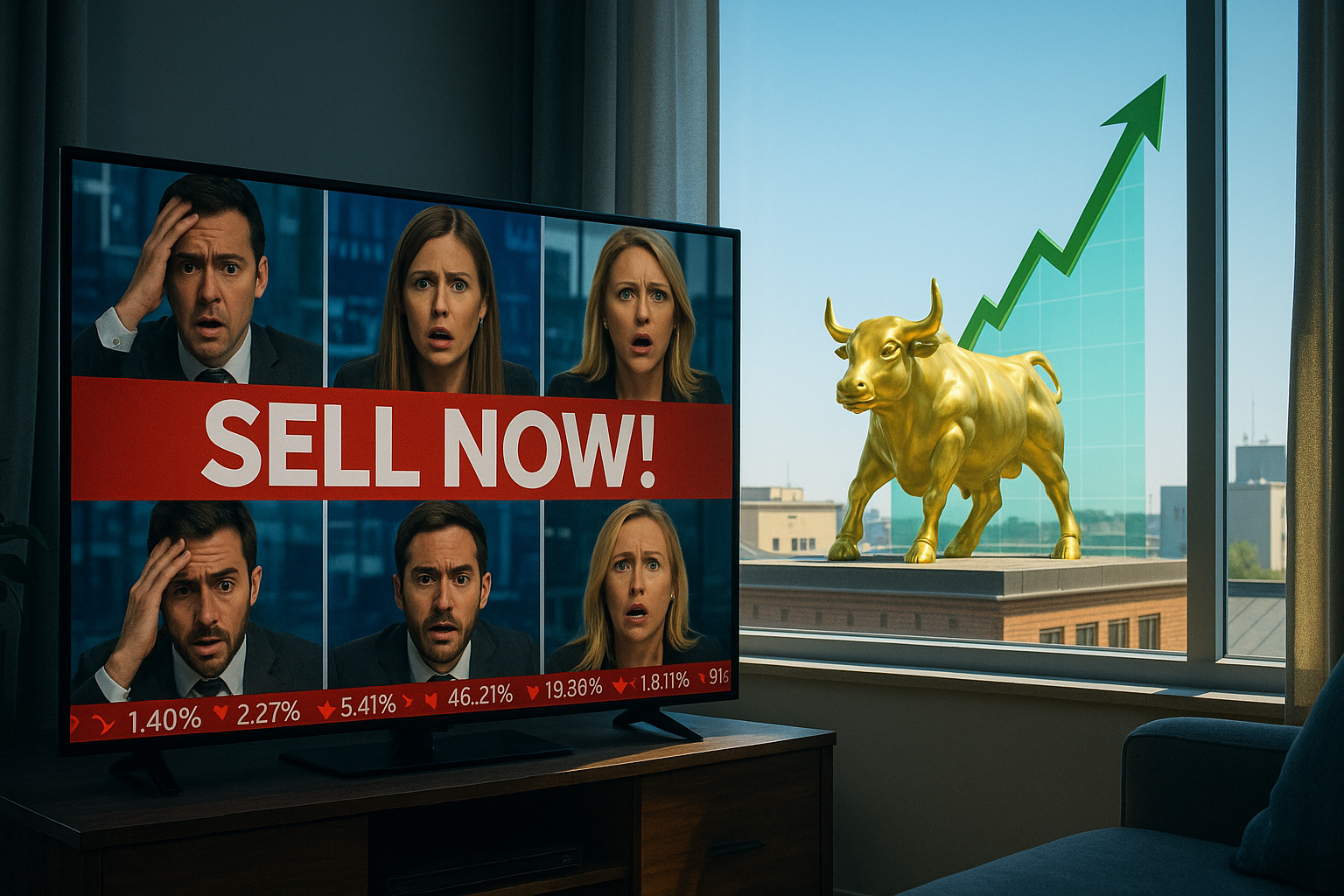There's something almost comical about the relationship between financial media and the actual markets they cover. It's like watching a weather forecaster predict thunderstorms while you're sitting outside under clear blue skies, ice cream melting in the summer heat.
This week was a perfect case study. While the talking heads at CNBC, Bloomberg, and Yahoo Finance were busy constructing elaborate doomsday scenarios—inflation monsters! overvalued tech! imminent crashes!—the market itself shrugged and continued its merry climb upward.
I've been covering financial media for over a decade now, and this disconnect never ceases to amaze me.
Look, the fundamental problem isn't that financial media is deliberately misleading you. It's that their business model is fundamentally at odds with what would actually help investors. Fear sells. Panic generates clicks. "Things will probably be fine" doesn't exactly make for compelling television, does it?
The Goldfish Memory of Financial Television
What I find most fascinating (and frustrating) is what the writer aptly calls "institutional amnesia"—this remarkable ability of financial media to make spectacularly wrong predictions with absolute confidence, then simply... move on. No acknowledgment. No reflection. No accountability.
Take Jim Cramer. The man is a one-person volatility index, bouncing between extremes with such regularity you could almost set your watch by it. His recent advice to take profits and hold cash during inflationary periods? It flies in the face of basic financial theory.
During inflation, cash is exactly what you don't want—it's literally losing value every day. (Hard assets, equities, real estate—these have historically provided some protection against inflation's erosion.)
But nuance doesn't make for good television, does it?
When Everyone's Screaming "Sell," Maybe That's Your Buy Signal
There's a reason veteran traders joke about using certain financial commentators as "reverse indicators." When financial media reaches unanimous consensus—when every headline screams the same message—something interesting happens.
By the time a narrative becomes consensus in financial media, the smart money has usually already positioned accordingly. Markets are forward-looking; news reports are backward-looking.
Remember March 2020? When markets had already plunged and COVID panic dominated every headline? That was precisely when one of history's most extraordinary rallies began. Or December 2018, when Christmas Eve brought market panic and declarations of a new bear market—right before a sharp reversal that made anyone who sold look foolish.
I've seen this pattern repeat so many times it's almost predictable. Almost.
The Time Horizon Problem
Perhaps the biggest mismatch between financial media and actual investing success is time horizon. Serious investors think in years or decades. Financial media operates minute-by-minute.
This temporal disconnect creates massive distortion—what matters in the next hour rarely matters for the next decade. Yet the financial media ecosystem treats every market hiccup like it's the beginning of financial armageddon.
Watching financial news to make investment decisions is like trying to drive cross-country by looking only at what's directly in front of your bumper. You'll overreact to every pothole and miss the actual destination entirely.
So What's an Investor to Do?
If you can't trust financial media for guidance, where should you turn? The article offers some solid principles:
- Develop your own thesis about the economic landscape
- Look for information others aren't paying attention to
- Consider contrarian signals (when everyone agrees, be suspicious)
- Think longer-term than the market's current obsession
- Recognize when commentary is trying to influence markets rather than predict them
The most successful investors I know (and I've interviewed dozens) consume financial media not for the recommendations but for understanding prevailing narratives—and then thinking independently about whether those narratives actually make sense.
Financial networks aren't completely useless—they're just most useful as indicators of market psychology rather than sources of actionable advice. The mistake is in confusing the map for the territory.
In markets, as in life, predictions are hard—especially about the future. The difference is that meteorologists don't affect the weather by predicting it, but financial commentators absolutely can influence the markets they claim to merely observe.
So the next time financial media reaches fever pitch about an imminent disaster (or miracle), remember their primary job: to make you watch, not to make you money. That part? That's still on you.
